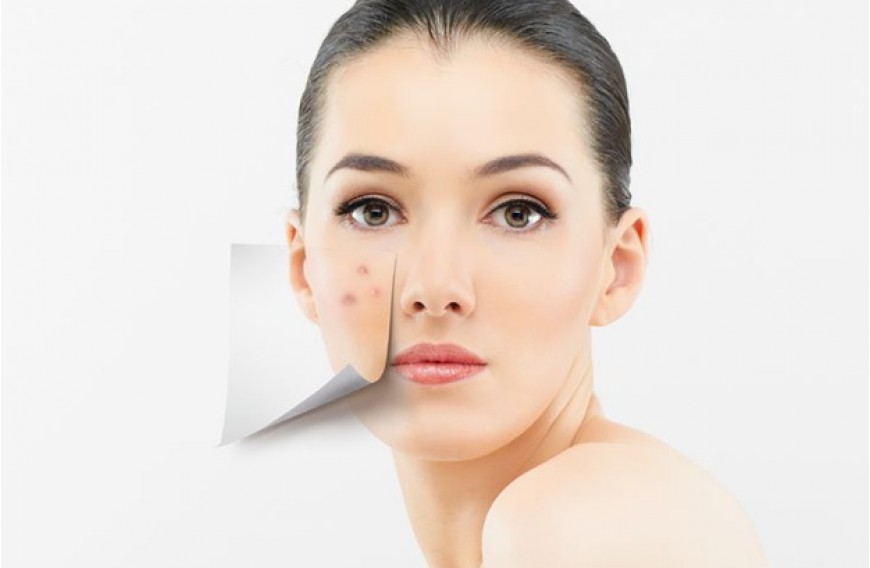Why do pimples appear, and how to get rid of them?
Acne is a common problem that has a chronic nature. This inflammatory condition can occur at any age but is most often seen in teenagers. Such breakouts can cause dermatological, aesthetic, and even psychological problems.
We often discuss acne with a cosmetologist. But how should one treat such conditions? Let’s figure it out together.
What is acne?
Acne is the most common skin pathology. Visually, it appears as bumps above the surface of the skin; they can occur on the face, neck, chest, and even back. Pimple outbreaks occur due to the accumulation of sebum, which leads to the formation of a small “lump”. At this point, harmful bacteria begin to multiply, triggering inflammation and breakouts on the skin.
Symptoms of acne
To quickly identify acne, several symptoms need special attention. These include:
- Oily shine
- The appearance of nodules and pustules on the face.
- Pain and itching in the affected areas.
- Post-inflammatory pigmentation or scarring after the breakouts dry up.
Acne pimples come in two types: closed comedones and open comedones. Closed comedones appear as small white bumps with a 1-2mm diameter. They have a firm, greyish-white consistency, and a pear-shaped form. When pressure is applied, their contents can be released. Closed comedones manifest as blemishes in the form of bumps.

Stages of acne
Acne is characterised by bumps protruding above the skin surface. It can be classified into mild (with only blackheads or whiteheads), severe (inflammatory breakouts), and extremely severe forms (multiple breakouts, scars, scar changes, and appearance of large pimples with a diameter of more than 5mm). When considering acne stages, the symptoms are as follows:
- Blackheads
- Subcutaneous pimples
- Typical pimples (pustules)
- Solid, inflamed nodules
Acne should not be masked, as it requires treatment at any stage.
Causes of Acne
The causes of acne on the skin include:
- Genetic predisposition
- Stress and harmful habits
- Unbalanced diet
- Hormonal changes
- Gastrointestinal disorders
- Use of certain medications
- Influence of psycho-emotional stress
- Excessive hygiene
- Allergic reactions
- Deficiency of minerals and vitamins in the body
- Endocrine system disorders
The worsening of breakouts on the face or body can be triggered by several factors simultaneously.
Acne in teenagers
Acne often appears during adolescence. The condition's onset occurs around 12-14 years in girls and 14-15 years in boys. Androgens hormones during puberty contribute to an increase in the size of sebaceous glands. As a result, a large amount of sebum is produced, leading to clogged pores.
Tips from a Cosmetologist for teenagers’ acne
Treating acne in teenagers requires special attention. If proper care is not provided promptly, the problems only worsen. Teenagers don’t always listen to their parents, so they can try seeking advice from online specialists. It is also important to follow dietary recommendations; minimising sweets, consuming fresh berries and fruits, and drinking plenty of water are advisable.
A specialist can help select the necessary products. Maintaining hygiene and cleanliness is also important, avoiding alcohol-based products and detoxifying the body from waste and toxins.
Personal experience - the diet and skincare routine of the cosmetologist’s daughter
It is important to explain to the teenager the cause-and-effect relationship and why avoiding sweets and taking care of the skin is necessary. Here are some valuable tips from a cosmetologist:
- Replace sweet products with dark chocolate and fruits. This helps improve intestinal function.
- Drink as much water as possible.
- Washing the face with clay can be beneficial as it helps remove infections and cleanse the skin.
- Use skincare products specifically designed for problematic skin.
- Results will not be long in coming if all recommendations are followed. But the most important thing is choosing the right products to help care for acne-prone skin.
Adult acne
Acne also occurs in adults. It can manifest as blackheads or more severe breakouts. The causes can be varied, with hyperkeratosis being the most common. Hyperkeratosis is the accumulation of dead cells that have failed to shed properly and form a thick layer on the skin’s surface. Sebum cannot exist through the sebaceous duct and becomes blocked.
When the body becomes depleted, frequent stress, lack of sleep, and vitamin deficiencies can all contribute to the development of acne.
Advice from a cosmetologist for adults with acne
If you have mild breakouts and experience hyperkeratosis, it is sufficient to exfoliate and adjust your home care routine. Eating a proper diet, ensuring adequate sleep, and taking time to relax is also important. Replenishing vitamin and mineral deficiencies is crucial, and most importantly, choosing the right cosmetic products.
Personal experience of a cosmetologist, acne at the age of 25
A guest shared their story with us: “I had normal skin, but at the age of 25, I went to a cosmetologist who performed an ultrasound cleansing without gloves. After this procedure, scars and numerous acne pimples started appearing. Another specialist prescribed antibiotics, but I experienced stomach problems. At the same time, I visited a cosmetologist who advised me to buy something from the pharmacy. Only a few years later, I discovered I had lactose and gluten intolerance. I had to change my diet quality completely, and the results showed very quickly”.
Acne in Children
Children can also experience acne. Even newborns can suffer from breakouts. This is primarily related to their diet. The severity of the condition can range from minor comedones or pimples to more severe symptoms.
Advice from a cosmetologist for children with acne
If children have acne, treatment should be prescribed by a specialist. The specialist will provide the necessary recommendations based on tests and individual characteristics of the child’s body. In childhood, the main task is to ensure a proper diet and consume vitamins.
Acne and diet
Diet plays a crucial role in managing acne to prevent breakouts. Dried fruits can be an excellent alternative to sugar, but it’s important not to consume them excessively. Other “sugar-free” foods such as nuts (cashews, macadamia, almonds), berries, dark chocolate, and lemon water can also be suitable.
Many people wonder about the effects of dairy and gluten on acne. A special diet is prescribed for acne, and it will be unique for each individual. However, in any case, it is harmful to consume excessive amounts of sugar, so its intake should be reduced. Dairy products can be consumed in moderation, within normal limits. Personal lactose and gluten intolerance should be considered, and such products should be eliminated if necessary.
Treatment of acne
The treatment of acne should include four important components:
- Regular and well-balanced nutrition helps the body naturally fight inflammation.
- Skincare using properly selected cosmetic products.
- Rest, a healthy lifestyle, and good sleep.
- Regular visits to a cosmetologist or dermatologist.
The treatment of acne is individually prescribed.
Acne and home care
Home care acne should be chosen based on the stage and characteristics of the condition’s development. If there are localised breakouts on normal skin, subjecting it to excessive cleansing or acidic treatments is not advisable. The epidermis can become depleted, excessively dried out, and the beneficial microflora can be destroyed. Healthy oily skin should have a pH level of 5.5. Drying the skin with acids can lead to the development of pathogenic microflora.
How to care for acne-prone skin?
Here are a few recommendations on what not to do:
- Using acid-based products without consulting a cosmetologist.
- Drying the skin with alcohol-based products.
- Squeezing pimples by yourself.
- Designing a home care routine without professional guidance.
It is better to seek a consultation and address all questions to a specialist.



